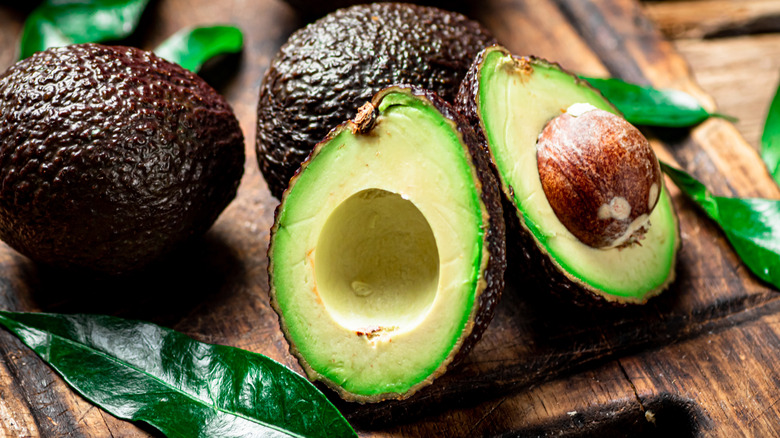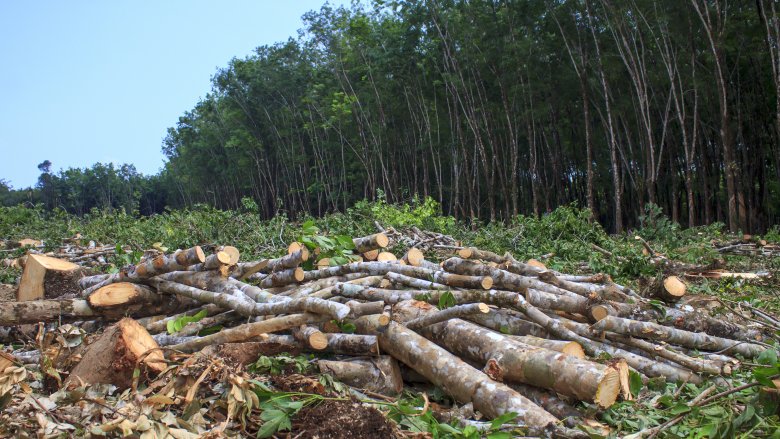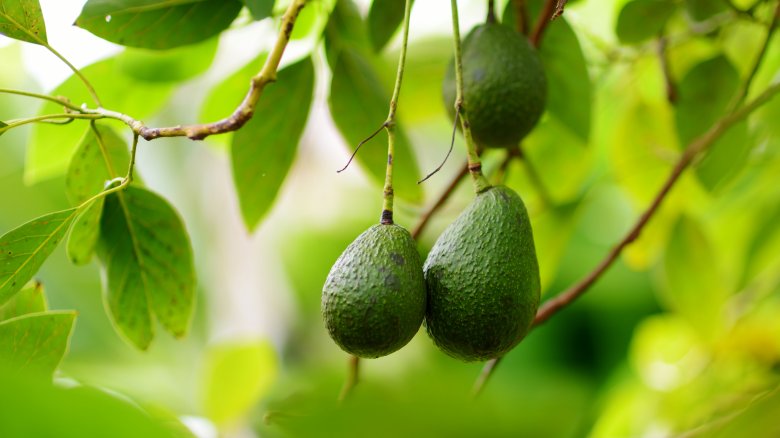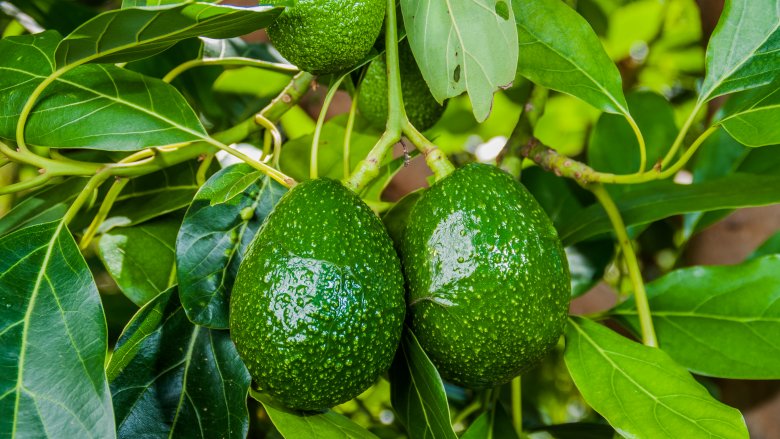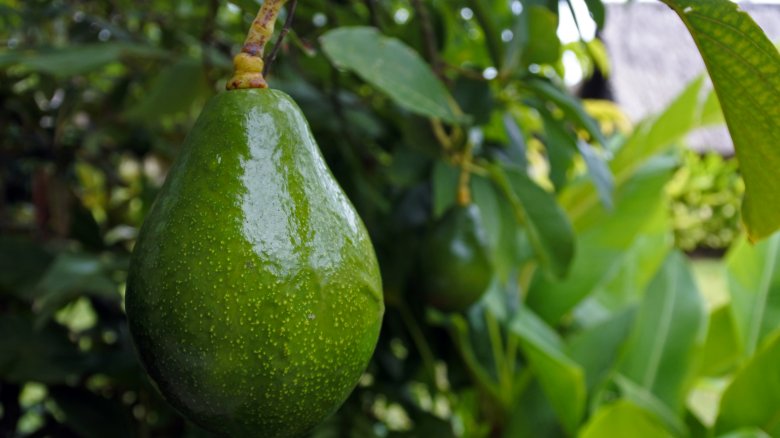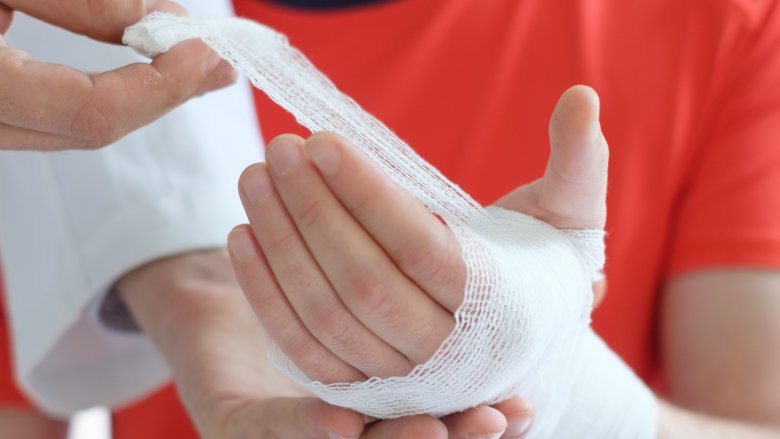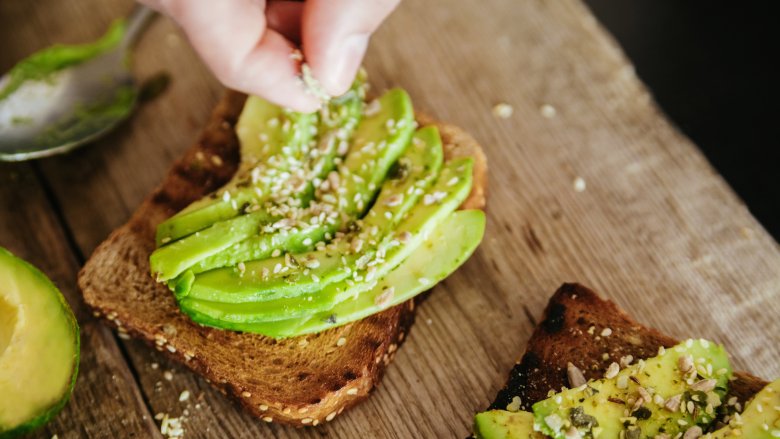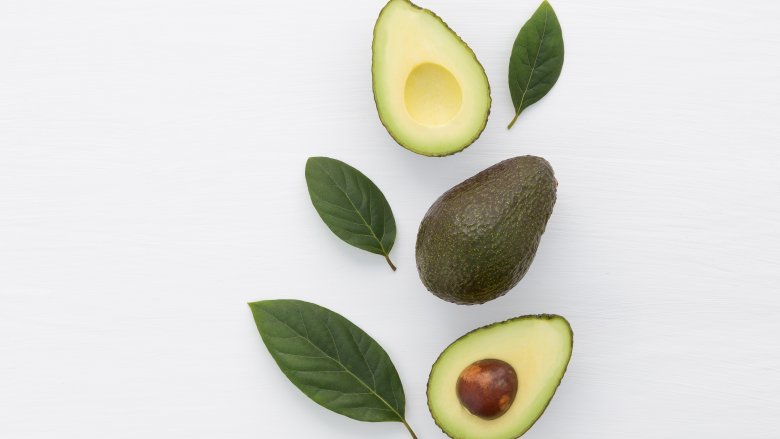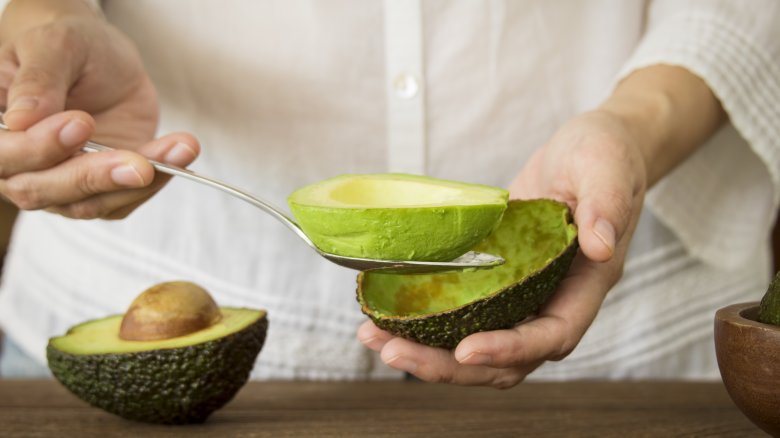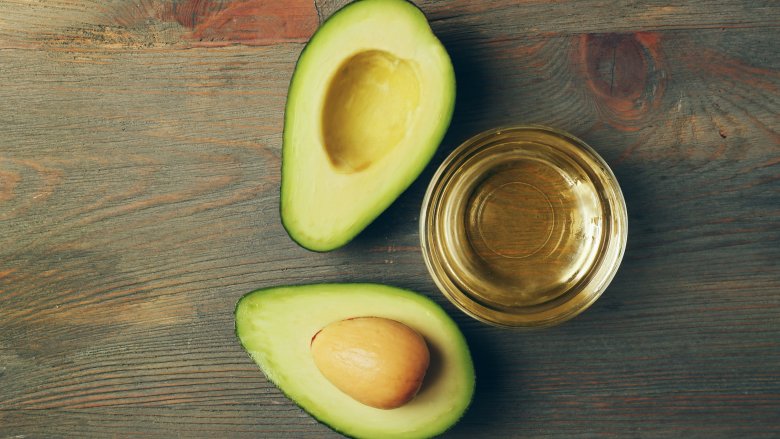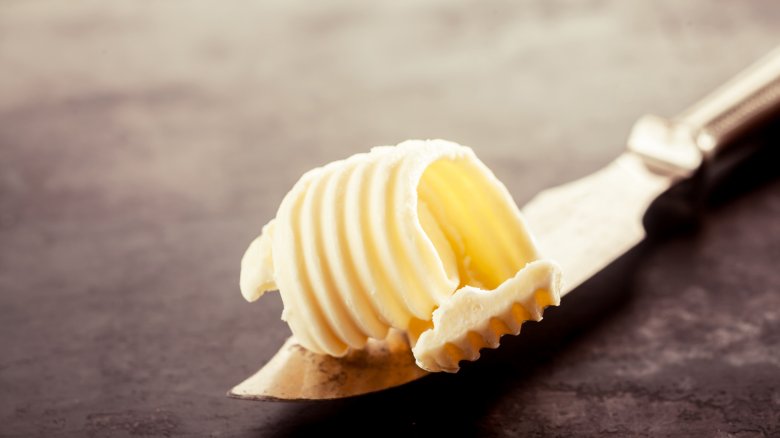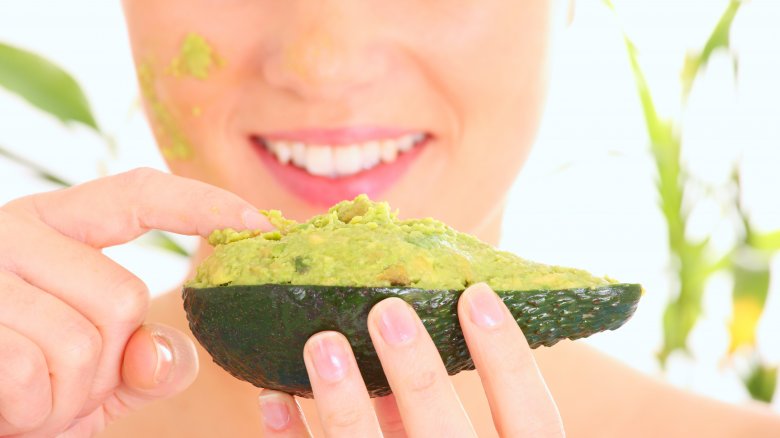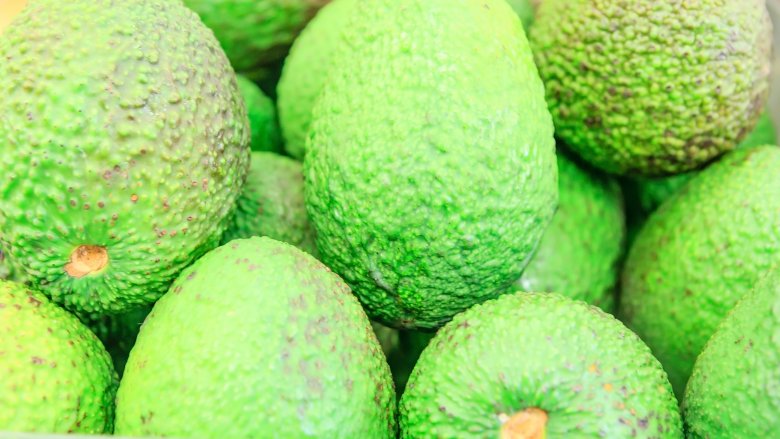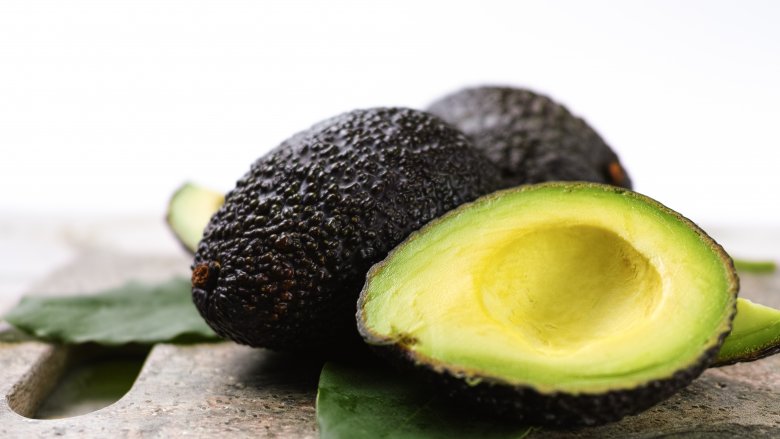Things You Probably Don't Know About Avocados, But Should
Avocados are having a serious moment. Just think about it, if you eat avocados, chances are you eat many more now than you used to. With the prevalence of avocado on the rise, you might think you know an awful lot about them, but there are probably an awful lot of things you don't know about avocados, that you probably should. From environmental impacts to human impacts, health effects and more, avocados are more than just the base for guacamole. If you love avocados or, at least, can appreciate them added to a sandwich, mashed into a dip, or blended into a smoothie, here's what you need to know.
They're causing illegal deforestation
Americans insist on avocado on everything now. The demand is so great, farmers are doing whatever they can to grow more to meet the supply. As a result, some of Mexico's pine forests are being illegally cut down to make way for avocado trees. Researcher Mario Tapia Vargas from the National Institute for Forestry, Farming and Fisheries Research in Mexico told the Associated Press that avocado groves require far more water than the pine forests that were there before, which means water resources are being dedicated to avocados instead of other farming, forests and bodies of water. Not only that, but in places where farmers haven't cut down the pine forests completely, in many cases, they've planted avocado trees underneath, which are more difficult for authorities to spot.
It takes a year for the fruit to grow
It only takes a couple minutes to eat one, but avocados take an awfully long time to grow before they can appear on grocery store shelves or your dinner plate at a restaurant. Believe it or not, it takes Americans' favorite buttery fruit a full year to fully mature before they're ready to be picked and shipped to your nearby grocery store. Who knew?
In the US, avocados can't touch the ground
Did you know that avocados have to be hand-picked? Scott McIntyre, the owner and CEO of Sierra Pacific Farms, and a third generation avocado grower, told food blog Confessions of a Foodie that avocado picking can't be automated because, according to governmental regulations, they cannot touch the ground if they're going to be sold. As a result, companies must pay for each to be picked, one at a time, by a real life person. There are a lot of things that can drive avocado prices skyward, but hand-picking means they'll probably never be quite as affordable as some other produce.
There's major gang involvement in some of the groves
Besides the environmental impact, your avocados might be further ethically murky because of who may or may not be in control of those avocado groves. According to Vocativ, a Mexican drug cartel has seized large swaths of the avocado industry in that country. While families used to grow avocados — and do quite well for themselves — a gang has now cut into that share of the industry, leaving families struggling. Avoiding all avocados from Mexico, however, could also hurt the family growers, who are already struggling, which makes your decision a difficult one.
Avocado hand is a thing
Apparently, with the rise of avocado toast came the rise of so-called "avocado hand," knife injuries that led to an influx of ER patients over the last few years. According to The Times of London, many of these injuries are fairly serious and include damage to the many nerves and tendons in your hand. Avocado-induced stab wounds are easy to avoid, however. Simply cut all the way around the avocado with a knife (with the avocado on a cutting board, not held in your hand) and then use a spoon to remove the pit. Alternatively, slice the avocado into rings and then peel. Or, just be more careful.
Have high cholesterol? Eat more avocado
While you might think it counterintuitive to up your intake of fat if you have high cholesterol, eating more avocado might actually be to your benefit. According to an article from Woman's Day, a study from the Journal of the American Heart Association found that people who ate an avocado each day were able to lower their "bad" cholesterol — the LDL cholesterol — by about 13.5 mg/dL. Not too shabby for a dietary change that's as easy as incorporating more avocado into your day.
It's a fruit, not a veggie
It might not look like it to you, but avocados are technically single-seeded berries, which make them fruits, not vegetables. Additionally, according to Livestrong, it's one of the few fruits that have a high amount of protein, which (along with all that healthy fat) can keep you feeling fuller and more satisfied longer, which means you won't run to the pantry shortly after eating.
Married people buy more avocados than single people
While Americans in general eat way more avocados than they used to, there might be some patterns and generalities about your avocado eating habits that can discerned based on your life circumstances. According to research from the Hass Avocado Board, married couples make approximately 72 percent of all avocado purchases. Based on how many avocados I, a single girl, buy on a regular basis, I'm not 100 percent convinced that that's true in every case, but data doesn't lie.
Every part of the fruit is edible
While there are differing opinions of whether or not you should actually eat the pit and other parts of the avocado, according to Men's Fitness, studies have found that there are health benefits to be gained from all parts of the parts of the avocado: the flesh, pit, and peel. You can also eat it as oil. Avocado oil has a higher smoke point than some other cooking oils, which means it can be a healthier choice depending on what you're cooking and how you're cooking it.
You can swap some of the butter in baked goods for avocado
While it doesn't work well to take all of the butter out of baked goods in favor of avocado, according to Delish, subbing about half the quantity of butter called for in a recipe for avocado is totally doable. All avocado will make your baked goods too flat, which you definitely don't want, but half and half cuts calories, and doesn't dry out the treats.
You can add them to your beauty routine
Avocados aren't just for eating, they can make great additions to your beauty routine, as well. According to HuffPost, you can use them for moisturizer on your skin or hair, a face mask that'll soothe irritation, a natural antidote for sunburn, and, maybe most exciting and surprising of all, an anti-aging facial treatment that'll knock those fine lines, wrinkles, and crow's feet out. If you've bought any beauty products lately, you likely know how much more affordable avocado would be. Doesn't hurt to give it a shot.
There are a ton of different varieties
While you probably regularly buy Hass avocados when you're in the produce section of the grocery store, there are tons of avocado varieties that you've probably never seen or heard of. According to Food Republic, there are about 16 different varieties of avocados that grow in the U.S. Each one has different peak seasons and ideal uses, so it's best to know how to match each avocado to each use. The more avocados, the merrier, after all.
It's really easy to tell if they're ripe
You might think determining an avocado's ripeness is a bit of a guessing game, but it's actually way easier than you think. According to Northwest Edible Life, and my own experience, if you want a pretty good indicator of if an avocado is ripe or not, simply remove the little remnant of the stem. If it's brown underneath, it's past its prime. If it's creamy, avocado green, then it should be perfect inside. If it looks too pale green, it's likely not ripe yet, so don't cut into it. Never unnecessarily throw away a under or over-ripened avocado again.
